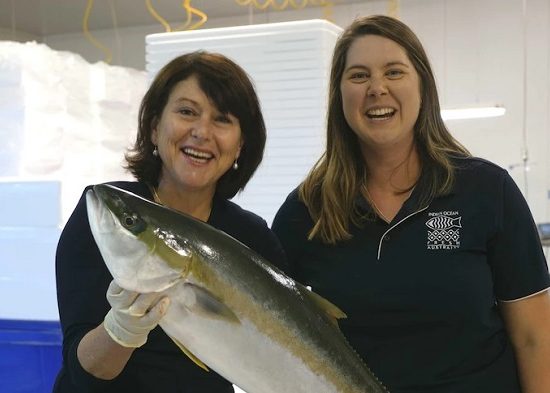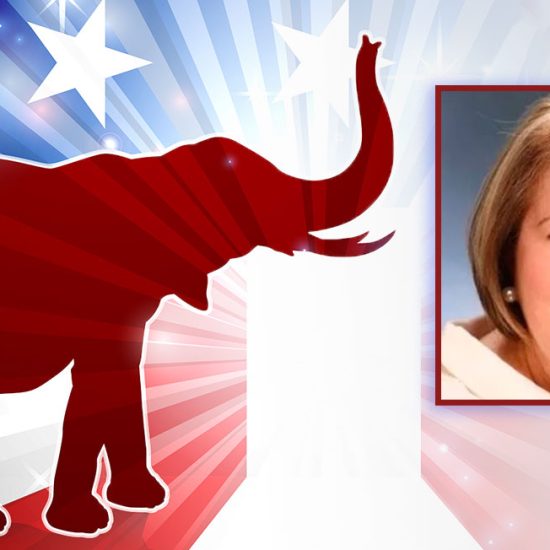
By Frank Dahl
August 3, 2021
Last week on the Tom Anderson Show Dr. Amber Northern, Ph.D., Senior Vice President for Research at the Thomas B. Fordham Institute, overviewed Alaska’s grade of “F” ranking highlighted in her Institute’s June report entitled “The State of State Standards for Civics and U.S. History in 2021.”
When asked about Critical Race Theory (CRT), and its role – if any, in Alaskan school curriculums, Dr. Northern responded,
“Ask people what it means to them, because I feel like there’s so much misunderstanding. And we talk in abstracts and it’s very unnerving. And so, if it means dividing kids into racial groups and having some of them be labeled ‘oppressors’ and some of them be labeled the ‘oppressed’ as Kindergartners, and first and second graders, that’s ridiculous. If it means asking young children to declare their white privilege as a child, that’s ridiculous. On the other hand, if it means that kids get exposed to a variety of literature from various authors and cultures in their English class, I think everybody agrees that’s a good idea. We don’t want kids just reading things written by sort of ‘dead white men’ is the phrase some people use. If it means hiring diverse teachers so that kids have role models that share their race and background, most people say of course that’s a good idea. So honestly – if it means that we don’t whitewash our history and that we actually name slavery as a key driver and cause of the Civil War, of course we need to accurate and factual.”
Dr. Northern’s point is the more we disconnect between races and cultures, the more antagonism and disunity our nation suffers. This logic makes sense.
Unfortunately, not everyone agrees.
Make a Google search online on “critical race theory” and you’ll find opinions and vantage points scattered across the policy spectrum.
On July 31st the Montrose Press (published by Wick Communications who owns the Anchorage Press and Mat-Su Frontiersman Newspaper in Alaska) printed an editorial by Dr. Carrie Stephenson, the superintendent of the Montrose County School District in Colorado. Dr. Stephenson uses the same bullet points many pro-CRT supporters cite. Critical Race Theory is an “advanced academic concept” and over “40 years old” and its foundation holds that “race is a social construct” and “racism is not merely the product of individual bias or prejudice, but also something embedded in legal systems and policies.” Dr. Stephenson admits CRT is divisive, noting “some states and school districts are even passing laws and policies to prevent teachers from teaching Critical Race Theory.” Unfortunately, she also states a ban on CRT is unnecessary. Read The Full Story at Montrose Press Here
Critical Race Theory - Perspective
Dr. Northern’s point is the more we disconnect between races and cultures, the more antagonism and disunity our nation suffers.
Our nation and the state of Alaska will follow a perilous path if we allow anti-white racism to proliferate in our schools, neighborhoods, and communities. There’s a substantive difference between contrition for bad decisions in our past by the long-since deceased (like legalizing slavery) and deconstructing America’s rich, vibrant history of successes and progress thanks to visionaries, many of whom were white males, only to be replaced with a narrative of shame and apology. Our foundations and forefathers are to be commended and praised and educated about, as a reminder of where we came from – in concert with the remembrance of the transgressions and tragedies befalling our nation.
In Alaska, State Representative Tom McKay (R – South Anchorage D24) is taking the lead in the Alaska State Legislature to prohibit Critical Race Theory from formally surfacing in Alaskan school curriculums through a pre-filed bill to be introduced in the 2022 legislative session. Rep. McKay deems his legislation as proactive considering the national trend.
“I have been keenly observing what has been happening nationally, and I also took careful note of the recent poignant statements by both the NEA and AFT presidents strongly supporting CRT,” he said. “I have also spoken to community activists, school board personnel, teachers, and a retired principal in Alaska, all of whom assured me CRT, or derivations of CRT, are alive and well in Alaska schools. Over history, Karl Marx and his ideology led to communism in numerous countries around the world including the Soviet Union, China, and Cuba. These communist regimes have been responsible for the slaughter of millions of people.”
Rep. McKay said he’s aware of at least these 22 states with pending bills to ban Critical Race Theory: Arizona, Arkansas, Florida, Idaho, Iowa, Kentucky, Louisiana, Maine, Michigan, Missouri, New Hampshire, North Carolina, Ohio, Oklahoma, Pennsylvania, Rhode Island, South Carolina, South Dakota, Tennessee, Texas, West Virginia, and Wisconsin. Out of those states, McKay noted at least four have already passed and signed legislation into law now in effect (Idaho, Iowa, Tennessee, and Oklahoma).
Texas Governor Greg Abbott recently signed legislation that goes into effect on September 1st directing how teachers can discuss current events and aspects of racism with their students.
In Texas, Senate Bill 3 is the special session update to HB 3979. The NBC News affiliate in Houston reports:
The new bill removes a list of a few dozen curriculum requirements including “the history of white supremacy, including but not limited to the institution of slavery, the eugenics movement, and the Ku Klux Klan, and the ways in which it is morally wrong.”
Other items removed include “historical documents related to the civic accomplishments of marginalized populations, including documents related to: the Chicano movement; women’s suffrage and equal rights (and) the civil rights movement.” Read more about the Texas Education Bill
 Ultimately, here in Alaska, it will be up to the Legislature, Governor Dunleavy, and both teacher and parental advocacies to decide on our next steps.
Ultimately, here in Alaska, it will be up to the Legislature, Governor Dunleavy, and both teacher and parental advocacies to decide on our next steps.
We already have a failing grade in social studies and civics, so not controlling special interest narratives that further divide our children and communities is an unwise choice.
Rep. McKay said he strongly opposes the tenets of CRT and has decided to fight efforts to promote such a curriculum in Alaska’s primary and secondary schools. “Since we are close to last in the national rankings, I would much rather our schools focus the billions of dollars the State of Alaska appropriates to them on the basics of reading, writing, and arithmetic, and stay out of efforts to revolutionize our culture in a Marxist direction,” he added.
I couldn’t agree more. And if you agree, let your school district and State House and Senate members know too, as the school season begins, and a special session reconvenes in mid-August.
Frank Dahl has owned bars, restaurants, and lodges throughout Alaska and in the Lower 48 for over five decades including Blues Central at the Chef’s Inn. As the founder of Anchorage CHARR and a former Director on Alaska CHARR’s Board, he has been active in hospitality and tourism industry policy development for years. He is a member of Rotary and recipient of an Alaska Legislative Citation for Public Service.











